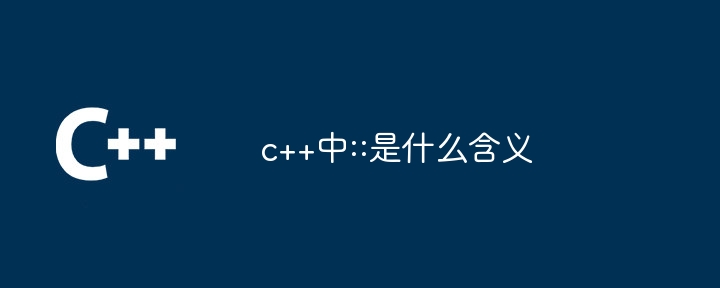
Scope resolution operator:: is used to specify the scope of the identifier and access members in the scope, including: accessing global variables and functions, accessing class members, and accessing static members. Avoid excessive use of::, to keep the code readable and maintainable.

The meaning of :: in C
In C, :: is called Scope resolution operator. It is used to specify the scope of an identifier and access members in that scope.
Function:
int global_variable = 0;
void function() {
::global_variable++; // 访问全局变量
}class MyClass {
public:
int member_variable;
};
int main() {
MyClass::member_variable = 10; // 访问类成员变量
}class MyClass {
public:
static int static_variable;
};
int MyClass::static_variable = 10; // 声明静态成员变量
int main() {
::MyClass::static_variable++; // 访问静态成员变量
}Notes:
int x = 10;
void function() {
::x++; // 访问全局变量 x
}The above is the detailed content of What does :: mean in c++. For more information, please follow other related articles on the PHP Chinese website!
 What are the differences between c++ and c language
What are the differences between c++ and c language
 Recommended learning order for c++ and python
Recommended learning order for c++ and python
 Cost-effectiveness analysis of learning python and c++
Cost-effectiveness analysis of learning python and c++
 Is c language the same as c++?
Is c language the same as c++?
 Which is better to learn first, c language or c++?
Which is better to learn first, c language or c++?
 The difference and connection between c language and c++
The difference and connection between c language and c++
 C++ software Chinese change tutorial
C++ software Chinese change tutorial
 Cost-effectiveness analysis of learning python, java and c++
Cost-effectiveness analysis of learning python, java and c++




